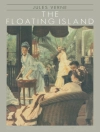In ‘The Complete Rougon-Macquart Cycle, ‘ Émile Zola offers a monumental exploration of the complex interplay between heredity and environment in the lives of successive generations of the Rougon-Macquart family. Spanning twenty unabridged novels, this literary magnum opus employs Zola’s signature naturalistic style, characterized by detailed descriptions and an unwavering commitment to depicting reality with scientific rigor. Set against the backdrop of the social, political, and economic upheavals of 19th-century France, this work serves as both an epic chronicle and a penetrating social commentary, revealing the moral and physical decay wrought by the Second Empire’s rapid industrialization. Zola, a leading figure in the literary movement known as Naturalism, was profoundly influenced by Darwinian theories of evolution and the socio-political landscape of his time. His commitment to portraying life as it is, without romantic embellishment, stems from his desire to expose the underlying socio-economic factors that determine human behavior. Zola’s personal experiences, including his struggles with poverty and his observations of the working class, inspired him to advocate for social reform through his writing. This edition is a must-read for scholars and enthusiasts alike, granting readers a comprehensive view of Zola’s ambitious project. Engaging with this cycle not only provides insight into the intricate narratives of the Rougon-Macquart family but also invites reflection on broader themes of societal influences that continue to resonate today.
Over de auteur
Émile Zola (1840–1902) was a monumental figure in the development of literary naturalism and a pivotal force in the political liberalization of France. His works offer a panoramic view of French social life during the Second Empire (1852-1870) through the lens of a diverse cast of characters, with a particular focus on the interconnected lives of the Rougon-Macquart family. In his seminal 20-novel series, ‘The Complete Rougon-Macquart Cycle, ‘ Zola examines themes of heredity, environment, and the impact of social conditions on human behavior.
Zola’s novels, replete with vivid characterizations and intricate plot dynamics, showcase his commitment to representing the real-world details of industrialization, including the squalor and inequality it wrought. His influence on literature is profound, with his methodical approach to storytelling and his insistence on thorough research for his novels, including works such as ‘Germinal’ and ‘L’Assommoir.’ His role in the Dreyfus Affair, notably through his open letter ‘J’accuse…!’ further cements his status as a fearless advocate for justice, demonstrating how his work extended well beyond the written page. Zola’s impact permeates not only the literary world but also the realms of social activism and political discourse.












